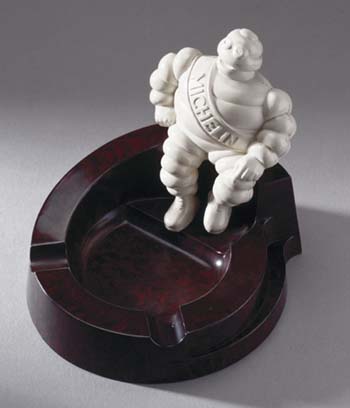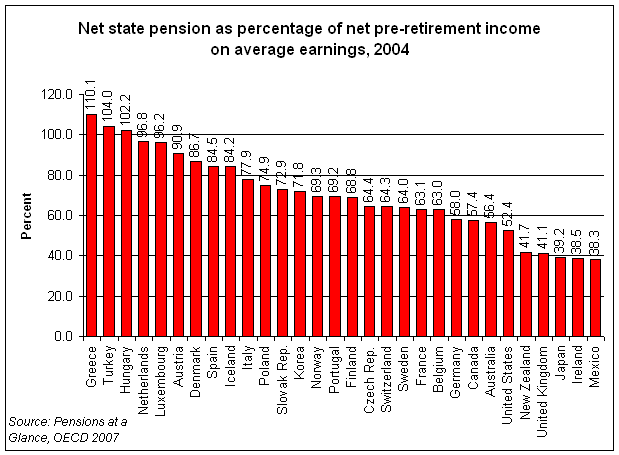
Barclays relents at last
Barclays Bank has given in to public pressure and will offer a way out to
2500 people trapped in their homes by the terms of a mortgage deal they did in
1998 (see Saga Magazine September 2006). They had taken out what was
called a Shared Appreciation Mortgage. They borrowed a quarter of the value of
their home. No interest was charged. And the capital was not repaid until the
home was sold. When it was the bank took back the loan and three-quarters
of the increase in the value of the home since the loan was taken out. With
house prices so high the share taken by the bank meant there was too little left
to buy another suitable home. So people stayed put. But because the bank owns so
much of their home, they cannot borrow more to repair or adapt it to their
changing needs as they get older.
After years of refusing to help Barclays will now offer its customers two ways out. If they want to move Barclays will give them an interest free loan equal to 75% of the growth in value of their home. They will use that to pay off the SAM and the homeowner will still have to pay off the original amount borrowed. But without the appreciation element they should have enough money left from the sale to afford to buy somewhere suitable. The new interest free loan will not have to be repaid until the new home is eventually sold. It will stay fixed however long that is and however much the new home grows in value.
People who do not want to move can have a grant from Barclays to adapt their home to make living there easier, perhaps for a downstairs bathroom or a stair lift. The grant will not be repayable but the SAM will continue and will have to be repaid in full when the home is eventually sold.
These deals are only available to those in ‘hardship’ but it seems that Barclays will be generous in applying this criterion to anyone who feels trapped by the original deal due to age or illness. The deal is also available to people who have already sold their home and paid off their SAM if they live somewhere unsuitable.
Saga Reader Reg Bayliss, who repaid the SAM and now lives in a mobile home "the only place I could afford", said he would look into the new offer but claimed Barclays were "Crafty devils. They’ll get the money back eventually won’t they?"
The offer does not apply to the larger group of SAMs customers with Bank of Scotland. A spokesman said "We will be studying any Barclays announcement very closely and with interest" and confirmed meetings have been arranged with the campaigning group SAFE and MPs.
More information
Barclays helpline 0800 023 2981
SAFE 0208 630 9990
www.safe-online.org/sams.html
Plastic fantastic
It is 100 years since the first completely artificial plastic was patented by Leo Hendrik Baekeland, a Belgian chemist working in America. Within a few years it was used in hundreds of industrial and consumer goods – from radios to jewellery to brake linings. Dr Susan Mossman, curator of the Plasticity exhibition at the Science Museum in London, says Bakelite was the right material at the right time. "It was perfect for the emerging electrical and automotive industries. Hairdryers, radios, switches. But also art deco design objects with beauty and practicality. You could make attractive, well designed objects in mass numbers. It was function and form."

A hundred years on bakelite is collected with a verve that previous generations reserved for porcelain or silver. Patrick Cook is the founder and owner of the Bakelite Museum in Devon. His interest was triggered by a bakelite radio "everyone said it was a horrible material, associated with the Depression, but I fell in love with the design." Ten thousand objects later he still is – and looking for a great rarity – an elusive bakelite guitar. "Common objects, ashtrays and the like, fetch just a few pounds. Jewellery is very popular and can be expensive." But beware of what collectors call Fakelite. Patrick says that touch, sound, and warmth all tell you if it is real.

So it is time to look again at those dusty old bakelite items. If you want to get rid of it, you can always sell it. And if you want to collect it, it will not cost a fortune.
The Bakelite Museum, Somerset 01984 632133
www.bakelitemuseum.co.uk
The Science Museum 0870 870 4868
www.sciencemuseum.org.uk
Pension limits
The good news – the state pension in the UK is getting better while most
other countries are cutting back on theirs. The bad news – ours is still among
the worst of the 30 major countries which belong to the Organisation for
Economic Co-operation and Development (OECD). Its latest report Pensions at a
Glance compares the state pension in all 30 countries. On average, people
across the OECD get a state pension which, after tax, is equal to 70% of their
net earnings before retirement. But in the UK the state pension is just 41%. In
Netherlands it is 96.8% and even in the USA it is 52.4%.

The OECD says only Hungary and the UK have improved their state pensions. The others have cut back by more than a fifth as life expectancy grows and costs rise. But the UK still has a long way to go to match the state pensions of many of its economic neighbours.
Organisation for Economic Co-operation and Development www.oecd.org
Online shopping
Almost half the adult population shops over the internet and spends more
than £20 billion a year doing so. But many of us do not know our rights. That is
one conclusion of a study by the Office of Fair trading into online business.
The OFT points out that people shopping online have greater rights than if they
shopped on the High Street as anything bought online can be returned within
seven days for a full refund. In a shop you have to show that something was
wrong with what you bought. Online you can just change your mind as long as you
do it within a week. You also have the right to know exactly who or what company
you are dealing with. The OFT found that many retailers were unaware that online
customers could cancel a deal – one in five electrical dealers for example said
customers could not return goods and get their money back without a good reason.
Many other retailers who did know the law did not make these rights clear on
their website nor provide an easy email or telephone contact for customers to
complain.
Office of Fair Trading
www.oft.gov.uk/news/press/2007/85-07
Trading Standards Central
www.tradingstandards.gov.uk
Tax help for older people
The Revenue often takes too much tax from older people. But because tax is
so complicated many do not realise they are paying the wrong amount. And even if
they suspect their tax may be wrong, they do not know how to get things checked
or put right. Those are the conclusions of a hard-hitting report by the Low
Incomes Tax Reform Group which calls for 25 changes to make sure older people
are taxed correctly and can understand the tax system better. It picks out three
areas for special criticism.
PAYE is the system which deducts tax automatically from our pay or pension but mistakes are common. In particular where there are several sources of income - for example two small pensions, some small earnings and the state pension – PAYE very often does not deduct the right tax. One problem is that the records are held in separate tax offices making coordination more difficult. Another is that the amount deducted from the tax code to take account of the state pension is not always correct. LITRG also says that when people become entitled to higher tax allowances at 65 and or 75 the correct allowance is often not applied by the Revenue. These errors can lead to people paying too much tax for years. In other case they result in underpayments of tax followed by demands for large amounts of money which people on low incomes cannot find.
LITRG also wants the rules for Gift Aid donations to charity changed. Gift aiding a donation enables the charity to recover 28p tax for every pound given. More and more charities are encouraging every donation – including entrance fees to gardens or attractions – to be gift aided. But people who do not pay tax cannot Gift Aid as there is no tax for the charity to recover. LITRG wants all charitable gifts to qualify for Gift Aid – even from non-taxpayers. It points out that when Gordon Brown introduced the scheme in 1999 he said it would apply when "a British citizen donates to any charity". LITRG says it should therefore apply equally to non-taxpayers.
Finally, the Group says that the Blind Person’s Tax Allowance – which can cut tax by £380 a year – is not claimed by many people who are blind or severely sight impaired. Out of about 190,000 who could claim, only 50,000 do so. If their income is too low to use the allowance themselves it can be transferred to a spouse. LITRG wants the Revenue to promote it more.
Revenue blind person’s claim line 0845 366 7887
Low Incomes Tax Reform Group www.litrg.org.uk
Tax Help for Older People www.taxvol.org.uk
0845 601 3321
August 2007